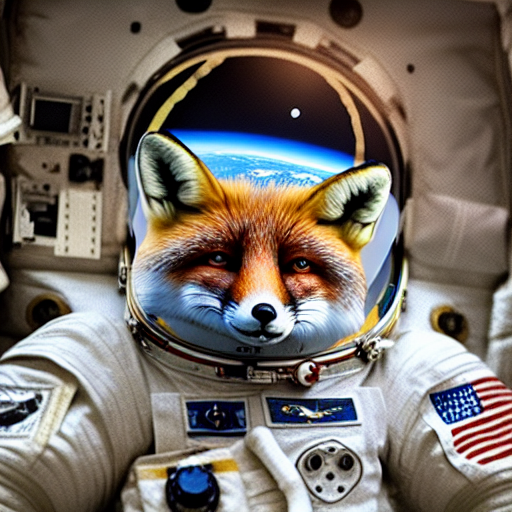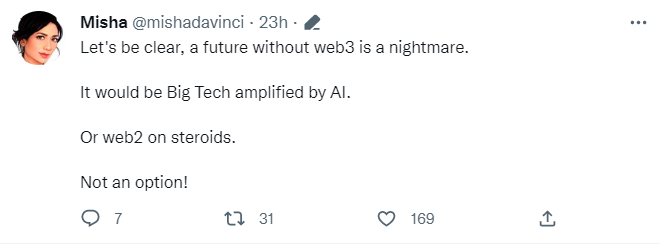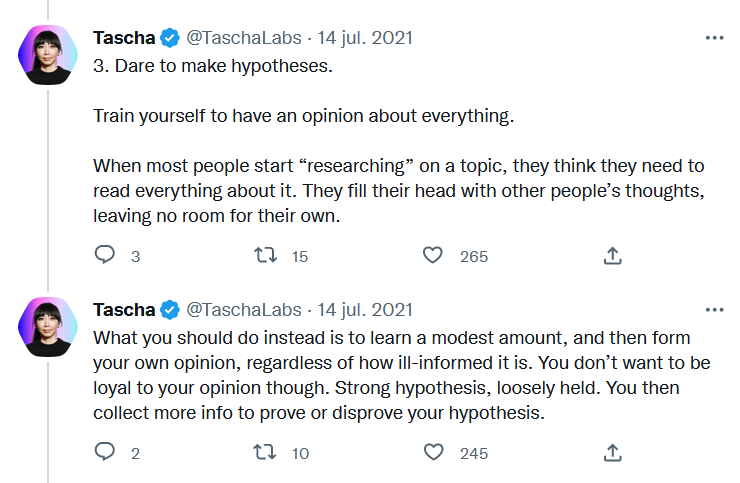I aim to make the world a bit better by
- encouraging volunteering in society
- stimulating donations to charity
- disseminating “functional” ideas
- encouraging volunteering in society
- stimulating donations to charity
- disseminating “functional” ideas
To these ends, I focus in particular on ideas related to
- a decentral digital world
- philosophy in a broad sense
- whatever intrigues me
- a decentral digital world
- philosophy in a broad sense
- whatever intrigues me
Vision
Digital awareness
R U digital? Anno 2022 it is difficult and undesirable to refrain from having a (multiple?) digital identity and leaving an online footprint. Everyone, who truly wants to participate in society, encounters the digital realm. We usually pay little attention to how we navigate the digital world. With this initiative I aim to instill digital awareness and suggest a direction for the future.
I want to contribute to a transition from web2 to web3, from a centralized to a more decentral digital world, in which the power shifts from a few large corporations to many users. This offers us the best opportunity to retain and improve democratic values, though web3 is not assured. Everywhere private and public central instances put these values at risk. Therefore, I openly advocate for decentral infrastructure shaping our future digital world, because we all play a role with our digital consumer behavior.
Leading by example
The best way to convince others is by making use of that particular thing yourself . Therefore I set up an Ethereum wallet to get access to and actively participate in web3. Next, I bought several digital objects, non-fungible tokens (NFT’s): I exposed art digitally through Oncyber; I attached a web3-username from Ethereum Name Service (ENS) to my wallet; I launched digital memento’s with the Proof of Attendance Protocol (POAP). These are current, popular applications of the decentral internet any somewhat tech savvy person can enjoy.
Propagating a global outlook locally
The big challenges of the 21st century and technological innovation unfold at the planetary level. We are allowed a life in the proximity of the town square – this also diminishes our ecological footprint – but if we want to comprehend the world and act accordingly, than we need to widen our perspective.
The world of cryptocurrencies with “cryptotwitter” at its vanguard, is extraordinary inclusive and unites people with diverse backgrounds, who look at the world with an open mind. Nevertheless, this global community risks remaining a niche, because it focuses primarily on internal growth rather than external growth.

I aim to promote a global outlook in my geographical and linguistic vicinity, by writing in Dutch and engaging myself locally. Simultaneously I offer content in English, hoping that others will elsewhere take similar local initiatives.
Interdisciplinary and generalist
The subject of cryptocurrencies and a fortiori NFT’s is remarkably interdisciplinary. It is situated on the intersection of computer science, cryptography, (behavioral) economics, political science, law, culture, ... On the one hand, specialists inform – the proverbial hedgehogs, who know one big thing – our common understanding through their narrow expertise. On the other hand, generalists cultivate – the proverbial foxes, who know many small things – our common understanding by integrating this information. I acknowledge the role of specialists, but prefer a generalist approach.
A pragmatic intellectual attitude
The (western) internet presents a platform for anyone to express their opinion. This is a valuable democratic achievement, but it questions the quality of the opinions circulating online. I speculate that many ignorant and less deliberate opinions populate the internet. Laypeople can unheedingly and effortlessly share a view, while experts require diligence.
For those with diverse interests the highest thing achievable is to land somewhere in between the extremes of laypeople and experts. Those people risk standing on the side lines in public debates, because they are nor unheeding nor regard themselves proficient. It is important for society that they also express themselves and enrich public debates.
Apart from collective benefits, striving for such an “intellectual attitude” is pragmatic for anyone’s individual growth. Our worldly insight augments by unhesitatingly asserting informed and reasoned positions, without remaining a tabula rasa. Studying one significant, reliable source suffices to rightfully formulate, test and reevaluate hypotheses. It is not a privilege of experts to benefit society and oneself.
Who?
A (dis)claimer
In the context of this project, I consider myself especially a philosopher and investor. For efficiency reasons, I will occasionally call myself so. I claim the former, predominantly because of my university studies philosophy. I venture the latter, because I deliberately allocate my humble funds, striving for their long term appreciation. Furthermore, “philosopher” and “investor” are no protected titles (at least in my home country) and anyone (or no one) can qualify so.
Given my academic background (philosophy, theoretical psychology and some economy) and professional experience, I am no expert on the subjects I assess. However, as a philosopher-investor I benefit particularly by understanding (parts of) the world an sich . It grants investors a means to expand their purchasing power. For philosophers understanding the world can be an ultimate or instrumental goal, for example to achieve ethical acting. Strengthened by this role, my mission and vision, I won’t shun bold statements. If they prove incorrect, they are at least benevolent.

